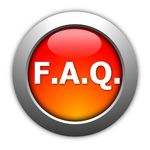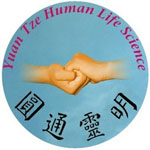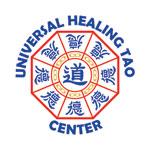Are you wondering...
How does Qi Gong differ from Tai Chi?
Tai Chi is a form of Qi Gong. Qi Gong is generic umbrella terminology for all exercises of this nature. Tai Chi (Tai Qi) is just one of thousands of Qi Gong exercises.
How does Qi Gong relate to Acupuncture?
Acupuncture is the art of balancing Qi flow in the body through the use of needles, heat or pressure. Qi Gong works also to unblock and free up Qi in the energy channels (meridians), and open up Qi gates (acupuncture points) so that it can reach everywhere it needs to in order for the body to function properly. Whereas you usually need someone else to acupuncture you, Qi Gong is a self-care exercise which anyone can practice for themselves.
Why is it so relaxing?
Qi Gong brings deep relaxation as a result of how the exercises are practised. By moving slowly and ‘bringing the senses inwards’, we re-unite our mind, body and spirit, which returns us to our natural state of calm and relaxation.
What makes Qi Gong different from other exercises?
There are several components which differentiate Qi Gong from other exercises:
Inward focus
Whilst Qi Gong does require physical movement, it focuses on bringing the attention inwards during practice. Exercises are often practiced with the eyes closed. This is quite different from most other exercises, including even many yoga practices.
Precise movements
Movements are very slow and precise, which has a strong and beneficial effect on Qi. As we free up blocked or stagnated Qi, energy can flow through joints and tissues to reach our internal organs, nourishing our body so it can function properly.
Simplicity and ease
Qi Gong is very easy to learn, can be practised by any age and any level of fitness. It requires no special equipment or specialist clothing, and can be practised anywhere, anytime, in a small amount of space.
Natural state
Qi Gong brings us back to the ‘natural state of the Tao’. Our natural state is to be calm (in the mind) and relaxed (in the body). When we are inwardly peaceful, our thinking is clearer, we feel healthy, and we are in tune with the natural forces of the universe. From this place our life flows smoothly and we are less inwardly or outwardly affected by the ups and downs of life.
Self-development
Because Qi Gong works simultaneously on our mental, emotional, physical and spiritual levels, it automatically grows our self-awareness (the ability to look inwards and examine our behaviours, beliefs, thoughts and actions). It helps us to evolve positively in our life, aiding us to drop life-depleting behaviours and adopt new positive, life-enhancing habits. This results in a better quality of life.
What is Qi Gong exactly?
Qi Gong is the name for a group of exercises which originated in ancient China over 6,000 years ago. The exercises were used to prevent illness, cure sickness, maintain good health and ensure longevity.
What does Qi Gong mean?
Qi Gong literally means ‘cultivation of life energy’. Qi is ‘energy’ and Gong is to ‘cultivate’. By working on our Qi, our essential life force energy, we can heal illness and improve health.
What is the meaning of Qi?
Qi is the essential building block of life. It is therefore the fundamental substance from which all parts of ourselves (mental, emotional, physical and spiritual) are made up of. In the East it is known as Qi or Ki, in India it is known as ‘Prana’.
A scientific description of Qi would be ‘energy + information + mass’ or ‘energy impregnated with information’. By working on our Qi we work at the most fundamental level of our being, which in turns benefits all parts of our selves.
How can Qi Gong benefit a person?
Qi Gong works simultaneously on all levels of a person’s being; mental, emotional, physical and spiritual.
Physically it helps to:
- strengthen and tone muscles, tendons, ligaments and sinews
- open up and bring flexibility to the joints and spine
- aid all internal functions such as digestion, elimination, circulation, respiration and reproduction
- turn on the body’s natural healing response and reverse illness and ageing
Mentally it helps to:
- improve concentration, focus and mind power
- calm the nerves and de-stress completely
Emotionally it helps to:
- neutralize and reduce negative emotions
- move from a place of ‘reactiveness’ to ‘respondability’
Spiritually it helps us:
- Connect with our intuition and inner most guidance
- Find and follow our life purpose



